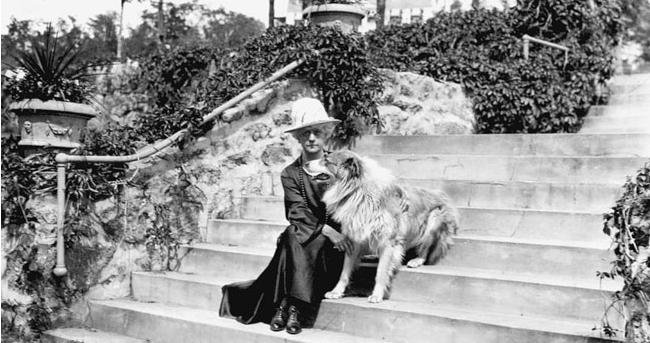Born into an affluent Yankee family, Clara Endicott Sears (1863-1960) devoted her life to literature, historic preservation, and philanthropy. Among her many accomplishments was the establishment of the Fruitlands Museum in 1914 at her summer estate in Harvard, Massachusetts.
Named for a farmhouse on the property that housed the failed transcendentalist community promoted by Amos Bronson Alcott, father of author Louisa May Alcott, Fruitlands served as a foundation for Sears’s exploration of art and culture, including that of utopian communities. She researched and restored the Alcott farmhouse with the aid of the Massachusetts Historical Society and the Society for the Preservation of New England Antiquities (now Historic New England). She also purchased the first building built by the Harvard Shakers, a 1794 office building, and moved it to her property where it was incorporated into the museum in 1922.
Sears worked with the Peabody Museum of Archaeology and Ethnology at Harvard University to acquire a Native American collection, as well as a collection of early 19th century primitive portraits. She also collected Hudson River School paintings and other American folk art and built a gallery to display her collection in 1939.
Sears received numerous awards for her work in historic preservation, including the Medal of Honor of the National Society of New England Women and the first Annual Author’s Club Citation of Distinction. An accomplished author, Sears wrote fifteen books of history, poetry, songs and reminiscences, including The Power Within, a year’s worth of quotations she compiled to “radiate serenity and happiness in its readers.”
Photograph courtesy of The Trustees

